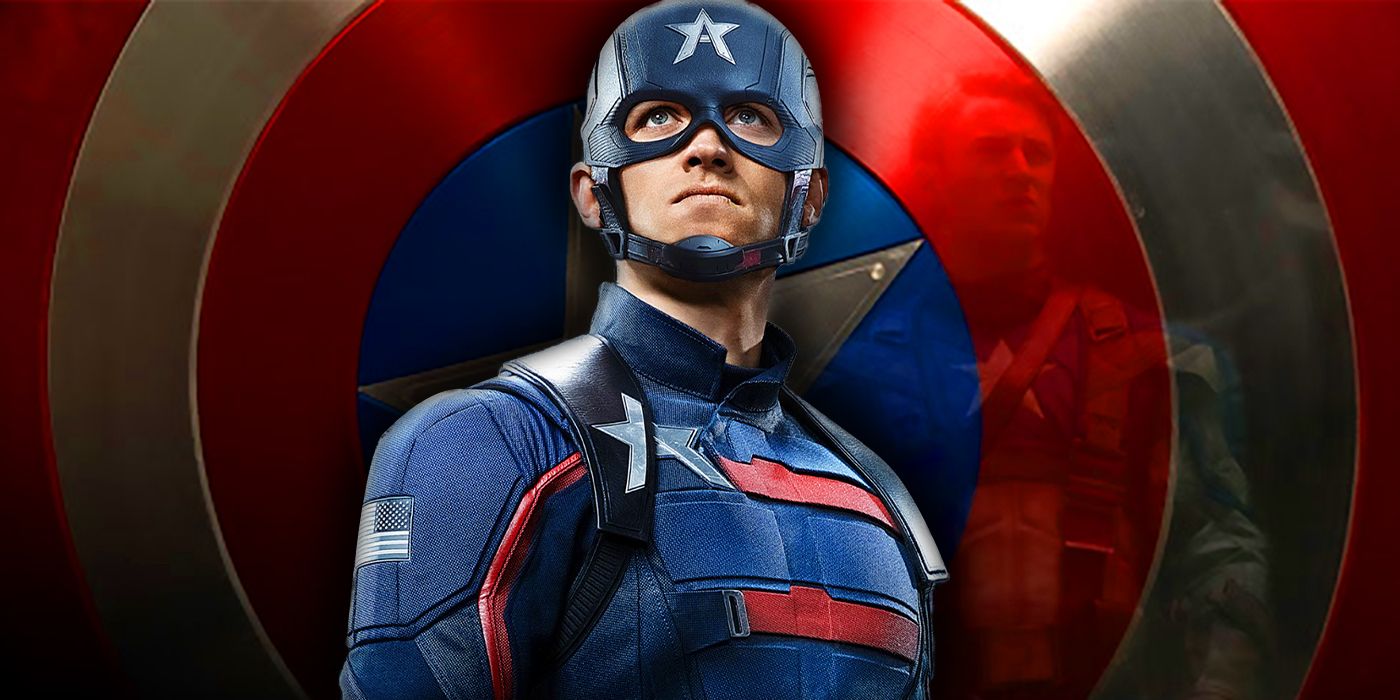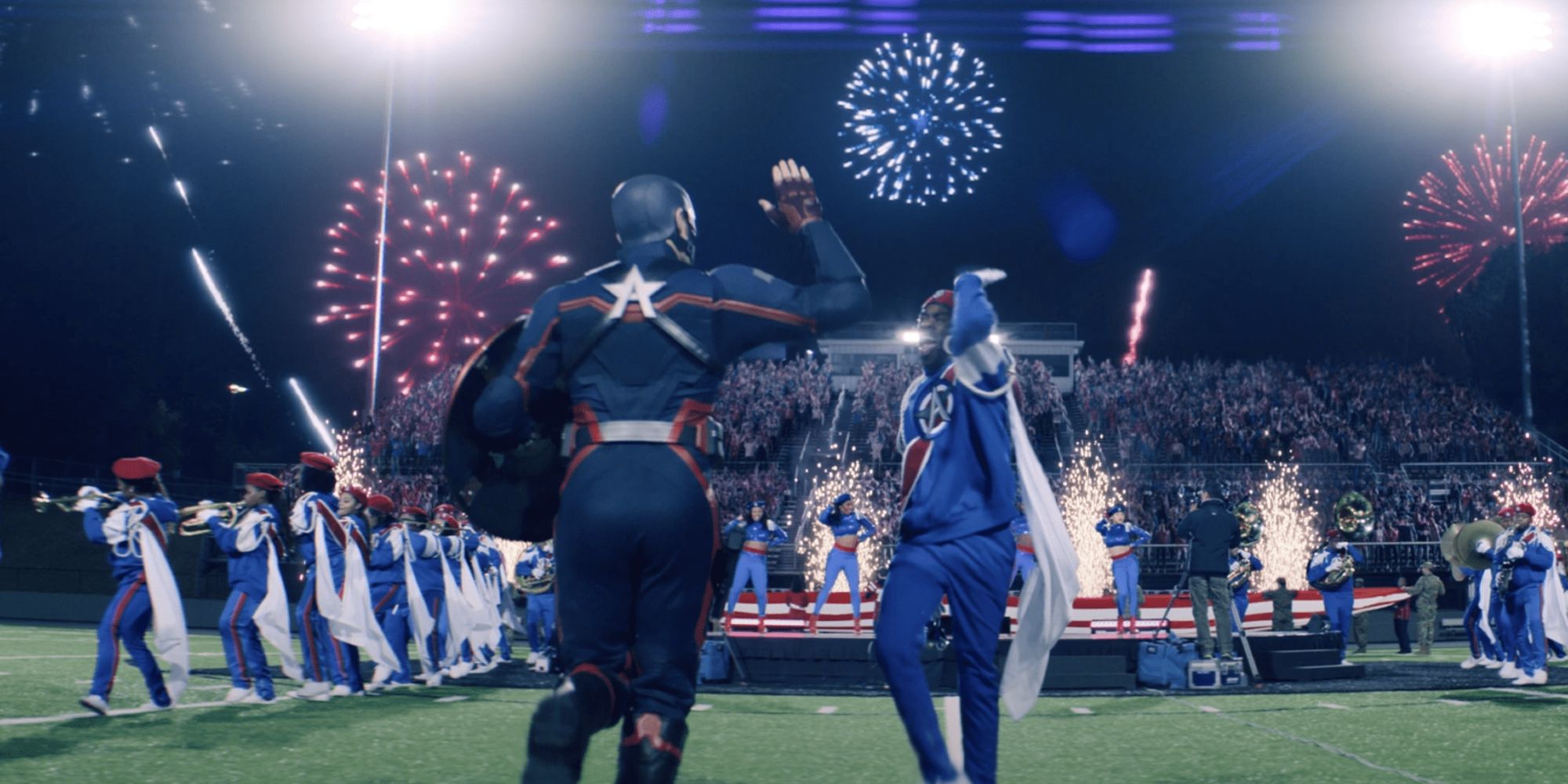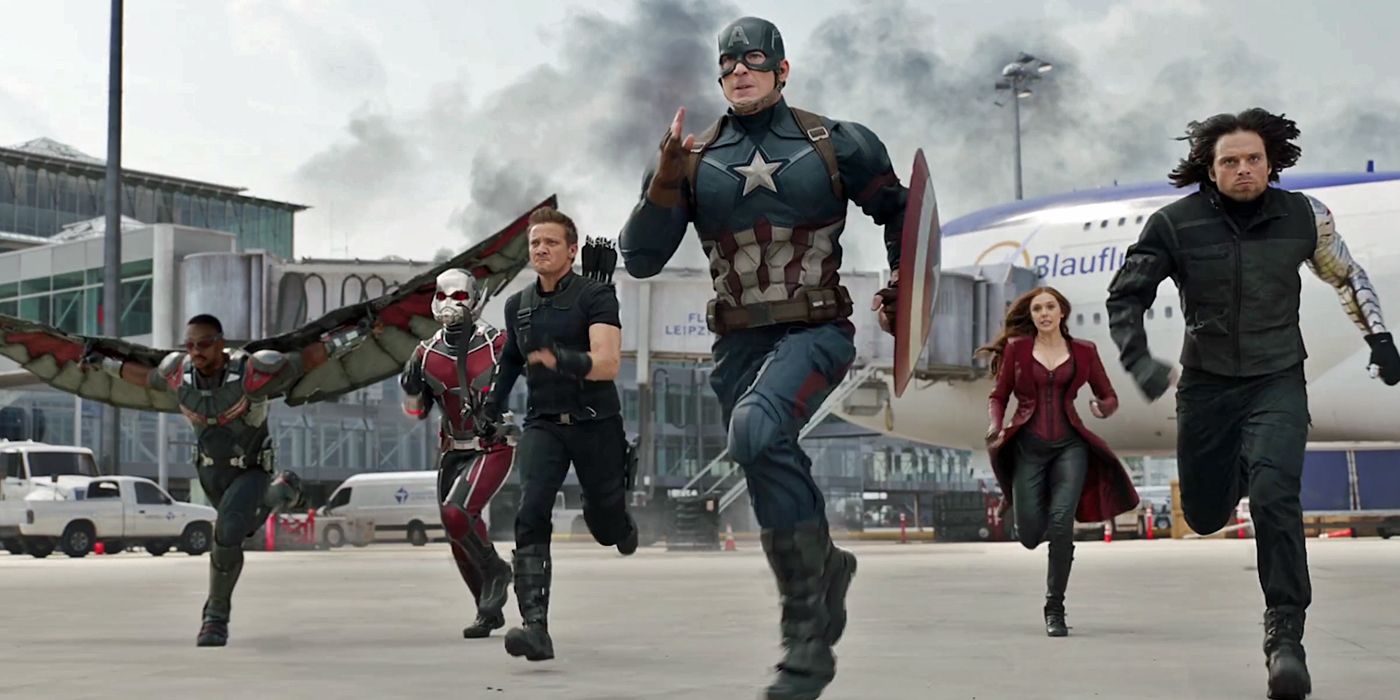WARNING: The following contains spoilers for The Falcon and the Winter Soldier Episode 2, "The Star-Spangled Man," now streaming on Disney+.
At the end of The Falcon and the Winter Soldier's first episode, a new Captain America debuted. Following this introduction, Episode 2, "The Star-Spangled Man," introduces viewers to the man under the red, white and blue costume: John Walker. The character is presented as a decorated soldier and war hero who just wants to do the right thing. He appears dedicated to the legacy of Captain America, and understands what the shield means to the public.
Fans may not appreciate Marvel introducing Walker as the new Captain America but, for the time being, it's understandable why the character was chosen to replace Steve Rogers. In fact, the series' latest episode draws a parallel between Walker and Rogers thanks to the return of an important line from Captain America: Civil War.
At the start of "The Star-Spangled Man," John Walker is in a football team locker room getting ready to make his big public debut as Captain America. As he wrestles with the pressure of following in the footsteps of Steve Rogers, he gets two visitors: the first is his wife and the second is his friend and fellow soldier, Lemar Hoskins, who later suits up as Walker's sidekick, Battlestar.
Walker and Hoskins talk about the former taking on a role that's very different from what he is used to. John is a soldier, first and foremost, but he talks about all the recent meetings he's had to sit through, all the politicians he has met and the hands he has had to shake in his role as the new Sentinel of Liberty. In answer, Hoskins tells him that Walker will now have to do things differently, that he will have to live up to the expectations of the suit. He observes, "You can't just punch your way out of problems anymore, you know?"
This line echoes one spoken by Natasha Romanoff, aka Black Widow, in Captain America: Civil War. In the 2016 film, Steve Rogers and Tony Stark were at odds over the Sokovia Accords, and their disagreement was heightened by Helmut Zemo, who was believed to be on the verge of waking multiple new Winter Soldiers. This all led to Steve and Tony's respective teams facing off against one another at an airport in Germany. Before the battle began, Black Widow, who was on Iron Man's side, warned Steve one last time: "You know what's about to happen." She asked, "Do you really want to punch your way out of this one?"
In both cases, the line is spoken to Captain America. In Civil War, Black Widow said it to try to prevent a full-on confrontation between the two opposing teams of Avengers. She knew the drive and the ideals that propelled Steve and understood he's not someone who stops even when the odds are against him. It's one of the defining qualities of Captain America, and it looks like it's shared by John Walker.
Indeed, by having Hoskins say that Walker can't simply punch his way out of things anymore, The Falcon and the Winter Soldier shows that the new Captain America has a drive like that of Steve Rogers. One of the episode's primary objectives is to showcase Walker as a character; it shows why he appears to be a good choice to be the new Captain America and proves that, for all intents and purposes, he is truly doing his best to live up to the title. In fact, the episode demonstrates that Walker and Rogers are similar characters. But as Walker hints in the episode's closing moments, he may also be hiding a dark side that makes him incredibly different from the first Captain America.
Directed by Kari Skogland, The Falcon and the Winter Soldier stars Anthony Mackie, Sebastian Stan, Emily VanCamp, Wyatt Russell, Noah Mills, Carl Lumbly and Daniel Brühl. New episodes debut on Fridays on Disney+.



